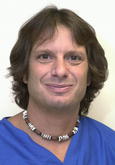GUMC Faculty Member Appointed to Commission by DC Council

Posted in GUMC Stories
 JULY 2, 2014 – A Georgetown University Medical Center faculty member has been appointed to the District of Columbia Commission on Judicial Disabilities and Tenure (CJDT).
JULY 2, 2014 – A Georgetown University Medical Center faculty member has been appointed to the District of Columbia Commission on Judicial Disabilities and Tenure (CJDT).
Dave Milzman, MD, professor of emergency medicine and assistant dean for student research at the School of Medicine, was appointed as a non-lawyer member of the seven-person body in June and will serve until May 2017.
A lifelong resident of Washington, Milzman has served on the Mayor’s Emergency Medical Services Advisory Council since 1991 and has testified before the Council of the District of Columbia 12 times on various medical and social issues. He believes his time on the advisory council, paired with his medical expertise, form a strong foundation for this new appointment.
“This is an opportunity for me to continue to give back to the city and to participate in the legal system at the highest level,” Milzman says.
The CJDT evaluates judges in four circumstances: in the event of conduct that might warrant disciplinary action; in the event of health issues that might necessitate that a judge step down; judicial reappointment proceedings; and when a retired judge wishes to continue judicial service as a senior judge.
While a physician member is not required, having the medical perspective on the Commission is invaluable, according to CJDT Executive Director Cathaee J. Hudgins. Hudgins says three physicians have served on the Commission during her tenure.
“I can attest to the invaluable assistance the physician members have provided to the work of the Commission, particularly when the Commission has had to make determinations concerning serious medical and disability issues,” Hudgins says.
The judicial reappointment process necessitates a comprehensive medical evaluation that considers the individual’s overall health, including cardiovascular fitness, neurological and mental health, and medication history.
“A physician can assist the Commission in assessing if certain medications prescribed for a judge might cause impairments, or if the neurological evaluation indicates there may be issues that could affect a judge’s cognitive skills,” says Hudgins.
Milzman hopes his involvement with the Commission will help open some avenues for Georgetown medical students who may want to pursue opportunities in the medical legal arena, including helping write legislation or gaining a better understanding how the law is applied in medicine, he adds.
By Sarah Reik
GUMC Communications
